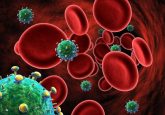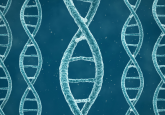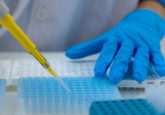Modified proteins could help weather the storm of coronavirus
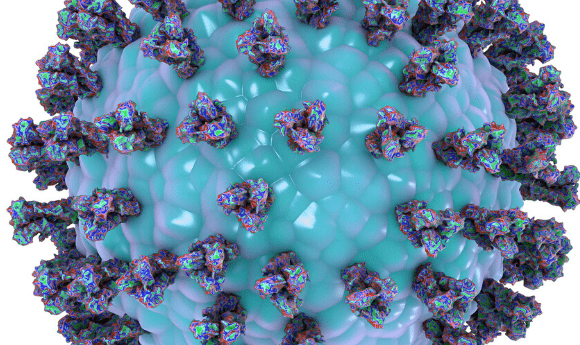
Modified cytokine receptors could be utilized to combat cytokine storms in severe COVID-19 cases.
In severe cases of COVID-19, patients experience an excess immune response, known as a cytokine storm, that causes potentially fatal damage to the lungs and other organs. A team of researchers from the Massachusetts Institute of Technology (MIT; MA, USA) believe that their recently developed modified proteins are the key to controlling the cytokine storms.
As reported in the Quarterly Review of Biophysics Discovery, the researchers have developed specialized antibody-like proteins with the ability to bind to and remove excess cytokines, helping to relieve symptoms in COVID-19 patients.
If you would like to keep up to date with our content on coronavirus, you can sign up for our site here, where you can subscribe to our newsletters for free!
“The idea is that they can be injected into the body and bind to the excessive cytokines as generated by the cytokine storm, removing the excessive cytokines and alleviating the symptoms from the infection,” remarked Rui Qing, a senior author for this study.
This study was not conducted in response to the COVID-19 pandemic, but was the result of a decade’s worth of research that conveniently came to fruition in time for the researchers to successfully apply it to this current global outbreak.
After working with difficult-to-study membrane-embedded proteins, which only maintain their structure when suspended in special types of detergents, Qing and his co-author Shuguang Zhang decided to develop a method that could make the proteins waterproof and therefore easier to study.
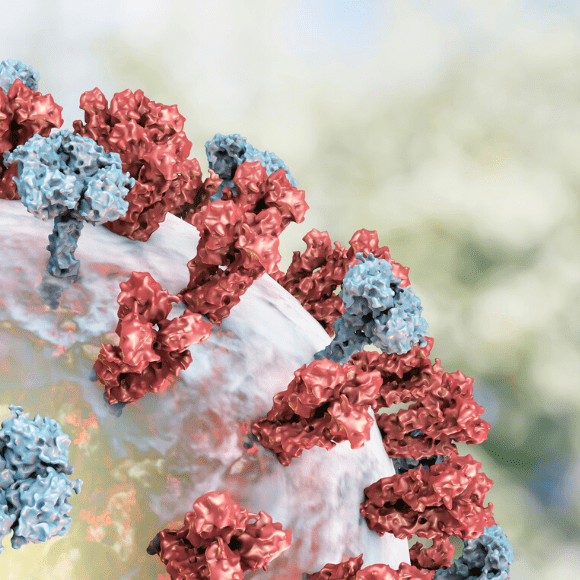 Refocusing our microbiome lab for SARS-CoV-2 research
Refocusing our microbiome lab for SARS-CoV-2 research
Sarah Allard describes how, in response to the emerging COVID-19 pandemic, they refocused their microbiome lab for SARS-CoV-2 research.
This method, known as the QTY code, involves replacing the hydrophobic amino acids (Leucine, Isoleucine, Valine and Phenylalanine) with similarly structured hydrophilic amino acids (Glutamine, Threonine and Tyrosine).
In April 2019, the researchers utilized the QTY code to cultivate water-soluble cytokine receptors, in order to fight the cytokine storms observed in bacterial or viral infections and cancer immunotherapy treatment.
These proteins were water soluble, which allowed them to travel efficiently through the human blood stream, without getting stuck to other cells they encounter, and contained an antibody segment attached to the FC region, which stabilized the proteins and prevented them from being attacked by the immune system.
Laboratory tests demonstrated that the modified proteins were able to bind to six different cytokine types (including interferon, interleukin and chemokines) with the same strength of a naturally occurring cytokine receptor.
Once evidence of cytokine storms in SARS-CoV-2 infection came to light, it didn’t take the researchers long to make the connection between their work and the potential impact that their proteins could have in the fight against COVID-19.
“As it turns out, our research initiated in April 2019 is directly relevant to the treatment of COVID-19 infected patients,” Zhang explained. “Curiosity-driven, or even proactive research often leads to preparedness, which is key to preventing future disasters.”
The researchers plan to carry out further tests in human cells and animal models of COVID-19 infections, in order to determine the true value of their use. They also hope to quickly license the technology and proceed towards clinical trials, with the help of biopharmaceutical companies.
“Obviously this approach will need further animal studies, and potentially human clinical studies,” concluded Jin. “But we have confidence that this discovery will contribute to clinical applications to address viral diseases that involve cytokine storms.”


